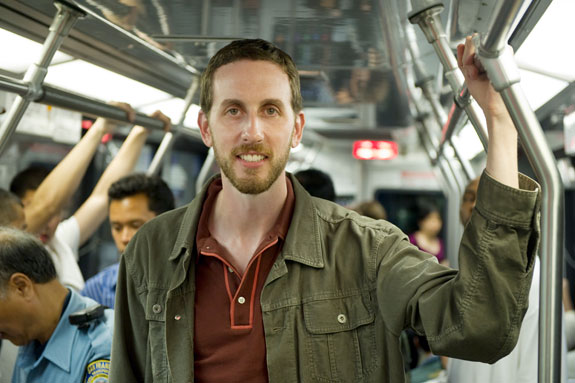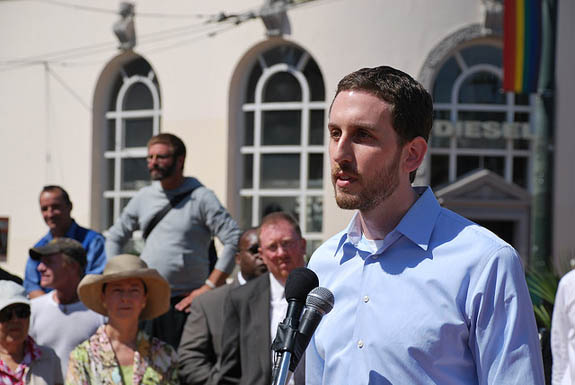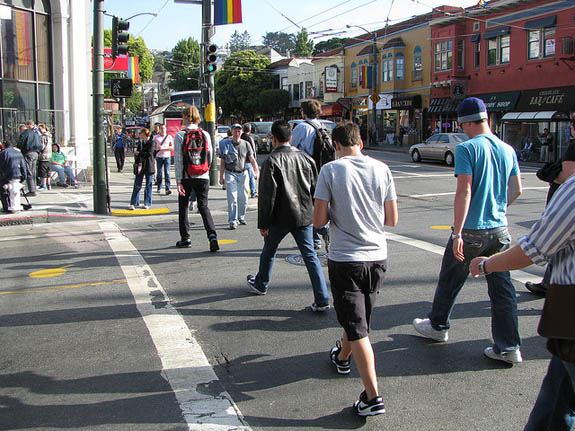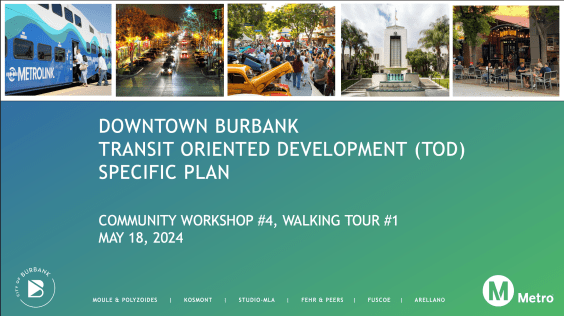
When some very vocal Noe Valley residents went Tea Party over a plan to convert street space into a trial plaza on Noe and 24th streets, closing a portion of the intersection to cars, District 8 Supervisor-elect Scott Wiener stood firm in his support for the project despite the risk of losing a few votes.
"I thought we should try it and see if it works," Wiener said in a recent interview with Streetsblog. "I've definitely been willing to put my money where my mouth is in terms of different uses of our streets."
Eventually, outgoing Supervisor Bevan Dufty caved in to the opponents, along with the Mayor's Office, and the plan to transform the heart of the neighborhood into a bustling social center died. It's illustrative of the kind of battles that may lie ahead and having Wiener at City Hall may help shepherd much-needed projects to improve the pedestrian realm, transit and bicycling in District 8.
Wiener, currently a deputy city attorney who won the D8 supervisor seat last month, doesn't take office until next month, but he's already signaled he is serious about livable streets issues with the hiring of Gillian Gillett as one of his staffers. Gillett, one of two aides who bikes regularly and takes Muni, is a respected sustainable transportation advocate who chairs SPUR's transportation committee and has spearheaded a number of traffic calming projects. She was largely responsible for the San Jose/Guerrero Pavement to Parks plaza.
"One of the many reasons that I hired Gillian is if there's anyone who understands the minute inner workings of the MTA it's Gillian Gillett," said Wiener, who believes that the collective bargaining mandated by Prop G and the implementation of the Transit Effectiveness Project (TEP) are the two big tests the SFMTA will face over the course of his term as supervisor.
"I'm going to be paying very close attention to what MTA does. I want to support their efforts to improve transportation in the city, but I'm also going to call them out when they're not doing enough," he said.
Wiener's transportation habits center mostly around Muni and walking, although he does own a car. "I hate driving. I mean, I drive when I need to in the city but I don't like it."
He doesn't ride a bike, but said his 72-year-old father is a "big cyclist" who still goes on 40 to 50 mile rides. When he was younger, not riding a bike was in some way a rebellious act since his father was always nudging him to ride.

"I'm very supportive of biking in the city but I just don't do it myself," said Wiener. "I thought about possibly getting a scooter, which I guess is going part of the way."
Although he supports the concept behind the SFBC's Connecting the City project, an ambitious plan to build out a network of fully separated connected bikeways, he said it would have to be on a case-by-case basis.
"I support cross-town bikeways, but I would need more information about the specific proposed routes/reconfigurations and the resulting trade-offs. As with bicycle boulevards, this strikes me as a case-by-case determination," he wrote in his candidate questionnaire [pdf] for the SFBC.
He did indicate support for physically-separated bikeways, eight bike projects in the Bike Plan that are still awaiting approval, transit-oriented development and reforming the California Environmental Quality Act (CEQA).
"The fact that the MTA may need to conduct some huge CEQA review about bus stop consolidation is just insane. It makes no sense," he said, before railing on CEQA's relationship to the Bike Plan and injunction. "For the whole bike plan? It makes no sense whatsoever and so obviously that's a change in state law, but I intend to advocate for that," he said.
In District 8, his priorities include improving service along the J-Church line -- a problem he said he'll inherit from Dufty -- and the Glen Park Community Plan .
"We have a lot of opportunities in Glen Park to make transit improvements there in terms of physical changes to the edges of the BART station to make it easier for Muni and corporate shuttles to sort of pull over and have better connections. In the Glen Park plan it calls for a number of transit hub changes around there and I'm very into that because that intersection is a mess," he said.

He also wants to widen the sidewalks in the Castro -- a plan developed by the Castro/Upper Market Community Benefit District -- and improve the transit stops there. In addition, he would like to see a pedestrian scramble installed at the intersection of Castro and 18th Streets.
"It would improve traffic flow so you would have less back-up," said Wiener, who added that he hasn't spoken to one merchant or resident in the Castro who doesn't like the idea. "It would be a nice pedestrian experience when you can cross diagonally,"
Parking issues, however, are another story. Wiener does not support extending parking meter hours and is reticent about removing parking.
"I've not spoken to a single merchant in my district who supports extending it. They believe that it will injure their businesses," he said.
When asked why he thinks they feel that way, he said, "There is sort of a Gestalt sense in the city that there’s been this continual movement of making it harder and harder to drive and park and more expensive and brain damaging and that it’s, you know, part of a strategic movement toward a reduction of cars in the city, which is partly true.”
Wiener does support SFPark and believes the city should study parking benefit districts "where a portion of the meter revenue in an area remains in the area to make tangible transportation and streetscape improvements." He wrote this in the SFBC questionnaire:
I support reducing the need for people to drive private automobiles in San Francisco, which will reduce the number of vehicles on our roads. We can do this by dramatically improving Muni’s reach and reliability, by making it easier to bike, by improving our taxi system, by increasing access to car-sharing, and by making our city more pedestrian-friendly.
Wiener said he would also like to see the taxi system reformed by centralizing dispatch and focusing on ridership. "I know a lot of people who would get rid of their car in a heartbeat if they really felt they could get a cab when they needed a cab," he said.
There were numerous issues I didn't get a chance to touch on in my interview with Wiener, but we hope to be in touch with him and his staff as he gets to work. Do you have issues you'd like to see addressed in District 8? Please leave them in the comments section. We know he and his staff are Streetsblog readers.




